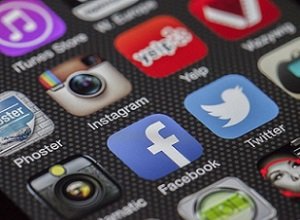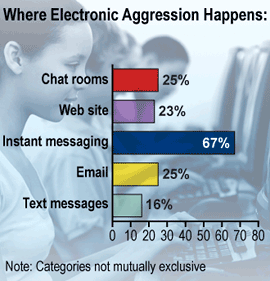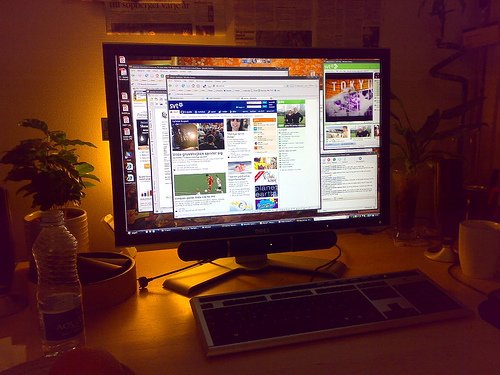How social media affect us ? Facebook, Twitter, Instagram

Since the face of psychology is constantly changing, it is impossible to end the “History of Psychology” series with a definitive, “…and that’s how psychology came to be.” Separate branches of the discipline have formed, medicine has become staggeringly important in treatment and prevention of mental illnesses, theories have formed and crumbled, and scholars have dedicated their careers to advancing the field. The science has been adapted by the masses, and has even become prevalent in pop culture – music (Blink 182’s “Stockholm Syndrome” comes to mind), television, and films have all explored mental illnesses and treatments.
The series has only briefly outlined the science’s origins and growth, and it continues to inspire many to study the workings of the human mind. Luckily, those who came before us provided us with the tools and terminology to hit the ground running and discover incredible things they couldn’t have even imagined.
More recently, the incorporation of technology into psychology has made it possible to supplement therapeutic techniques with computer-based counseling, test brain activity, and accurately record and analyze complex data – and that’s not even the beginnings of its potential influence on the field. Although technology will undoubtedly open up doors for the next generation of researchers, a Google search of “psychology technology” actually leads to a number of pages dedicated to explaining the effects of technology on our own minds.
The topic is broad enough to expand into dozens of articles, so this top 10 list tackles only some of the most staggering results of studies and surveys pertaining to social media. Chances are, if you’re reading this you participate in social media in some way or another, so next time you go to check your Facebook, retweet an interesting link, or choose an Instagram filter for a selfie, think about the ways your brain is processing the seemingly endless stream of information it is taking in.
Social media is addictive.
Studies show that 63% of Americans log on to Facebook daily, and 40% log on multiple times each day. People use the site for myriad reasons; however, it usually serves, on some level, the same basic purposes: distraction and boredom relief. “Likes” and comments are positive reinforcement for posting information, making it difficult for a person to stop. Researchers have found this so common that they created a scale to measure this addiction: The Berge Facebook Addiction Scale.Social media makes us compare our lives with others’.
Posts on social media many times present an idealized version of what’s happening, what something looks like, or how things are going. This can lead users to constantly compare themselves to others and think less of their own lives. If things are going particularly well for people in your newsfeed and you’re having a rough day, of course this will likely negatively affect your mood. In fact, in 2012 a team of researchers in the UK surveyed users, 53% of whom said social media had changed their behavior; 51% said it was negative behavior because of decline in confidence they felt due to unfair comparisons to others.Social media makes us restless.
Out of the same sample as the above example, two-thirds admitted to having difficultly relaxing when unable to use their social media accounts.Social media gives rise to cyberbullying.
Cyberbullying is an enormous concern, especially for adolescents. An organization that aims for internet safety, called Enough is Enough, conducted a survey that found 95% of teenagers who use social media have witnessed cyberbullying, and 33% have been victims themselves.

and alcohol use.
A study that explored the relationship between teenagers, social media, and drug use found that 70% of teenagers ages 12 to 17 use social media, and that those who interact with it on a daily basis are five times more likely to use tobacco, three times more likely to use alcohol, and twice as likely to use marijuana. In addition, 40% admitted they had been exposed to pictures of people under the influence via social media, suggesting correlation between the two factors. Although a correlation is all it is, it makes sense that social media would amp up the amount of peer pressure to which teenagers are exposed.
Social media can make us unhappy.
A study from the University of Michigan collected data about Facebook users and how it correlated with their moods. Simply put, they found that the more avid users were overall more unhappy than those who used the site less. Over more time, avid users also reported lower satisfaction in their lives overall.Social media can lead to fear of missing out, aka FOMO.
Fear of missing out is a phenomenon that occurs when you feel pressure to be doing what everyone else is doing, attend every event, and share every life experience. It can evoke anxiety and cause social media users to question why everyone is “having fun without them.” Surveys have even found that people feel insecure after using Pinterest because they feel that they aren’t crafty or creative enough. Facebook and Twitter can make people feel like they aren’t successful or smart enough.Social media often leads to multitasking.
How many tabs do you have open right now? How are you even concentrating on one thing? The thing is, you’re probably not – especially if one of those tabs is a social media site. Research has shown that our brains don’t have the capacity to fully focus our attention on two things at once, and instead multitasking causes our brain to quickly switch from one task to another. This hinders information processing and productivity. Closing out your Twitter feed can seriously help you get some work done.

Welcome to Steem, @jakub.laudacki!
I am a bot coded by the SteemPlus team to help you make the best of your experience on the Steem Blockchain!
SteemPlus is a Chrome, Opera and Firefox extension that adds tons of features on Steemit.
It helps you see the real value of your account, who mentionned you, the value of the votes received, a filtered and sorted feed and much more! All of this in a fast and secure way.
To see why 2846 Steemians use SteemPlus, install our extension, read the documentation or the latest release : SteemPlus 2.17 : Tips.
Welcome to steemit

Join us on our Steemschool discord
using this link
https://discord.gg/2F74XX9
And get to learn about various niches...
Photography, arts, poetry, business amongst others...
THERE IS A 5000 SBD CONTEST GOING ON
The interesting part is we have people all over the world and we help each other grow...
There are over 6k steemian ready to support your growth on steemit
Best wishes 👏👍
Thanks for that Article! Some very interesting facts in there about social media that I don't think most people are even aware of! Following you and looking forward to your future posts :)
Welcome to steemit @jakub.laudacki. Join @minnowsupport project for more help. Checkout @helpie and @qurator projects.
Send SBD/STEEM to @treeplanter to plant trees and get an get an upvote in exchange of your donation (Min 0.01 SDB)
Upvote this comment to keep helping more new steemians
Send SBD/STEEM to @tuanis in exchange of an upvote and support this project, follow for random votes.